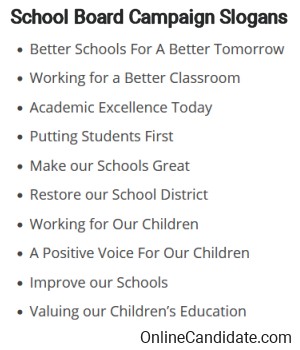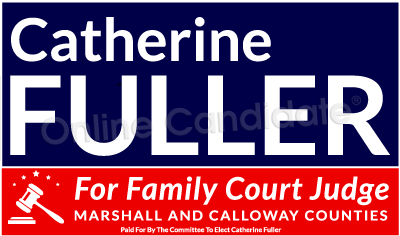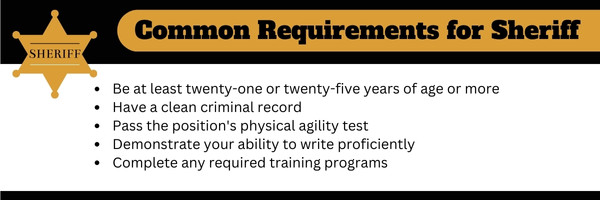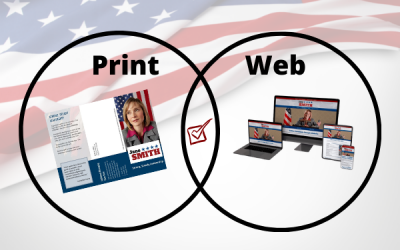Online Political Candidate Training Programs
If you are considering a run for local or state office, you may not know where to start. From planning your campaign to getting out the vote, there is a lot to learn.
There is more help than ever available for political candidates and potential candidates. If you are new to politics, as a candidate or staffer, you are probably overwhelmed with questions. So, it’s a good idea to become educated about the election process, what it takes to win, and how to effectively lead.
Below is a list of organizations that help you run for office. Their online programs are packed with essential skills and insights that are crucial for any aspiring political candidate or campaign worker.
Political Training Courses and Programs
American Majority: Non-partisan, nonprofit that continually trains, organizes, mobilizes, and equips new grassroots conservative leaders. Offers in person and online.
Arena: Provides training to aspiring campaign staff, with a focus on recruiting and supporting women, people of color, and members of the LGBTQ+ community. Offers Arena Academies, a five-day intensive web program.
Asian Pacific American Institute for Congressional Studies (APAICS): A national non-partisan, nonprofit organization dedicated to promoting Asian Pacific American participation and representation at all levels of the political process, from community service to elected office. The focus is on developing leadership, building public policy knowledge, and filling the political pipeline for Asian Pacific Americans to pursue public office at the local, state, and federal levels.
Blue Institute: Focusing on the South and Southwest, the Blue Institute works to bring more young people of color to become leaders, strategists, and key staff members of progressive electoral campaigns and organizations.
Collective PAC: Mission is to build Black political power through educating and equipping voters, donors, and candidates with instruction, technical assistance, advertising, and fundraising. Working to fix the challenge of under-representation of the Black community and help candidates run for office throughout the nation.
Dare to Run: Offers women candidates the chance to participate in a one-year certificate program in pursuit of a career path in public service. Dare to Run gives women the opportunity to be a voice for their communities by committing to run campaigns for elected office within two years of graduation.
Democracy for America (DFA): Building and empowering a broad coalition of grassroots organizers to elect the New American Majority—people of color and white progressives—to fight for inclusive populism at all levels of government in all 50 states. Offers online and in-person coaching. Founded by Howard Dean in 2004.
Elevate: Campaign Training for People with Disabilities: Helps people with disabilities learn how they can run for office to represent their community. Offers a series of webinars that teach core campaigning skills.
Emerge America: Recruits, instructs, and provides a powerful network to Democratic women who want to run for political office. Offers a number of boot camp and longer educational opportunities.
Emily’s List: Helps train Democratic women. The Ignite Change Fellowship is an eight-week virtual instruction initiative. It’s designed for community leaders, organizers, and advocates to develop their political skills and confidence.
Federal Election Commission: Each year, the FEC hosts two-day regional conferences where commissioners and staff conduct a variety of technical workshops on the law. Discussion topics include fundraising, reporting, and communications. Paid.
Higher Heights for America: National organization providing Black women with a political home exclusively dedicated to harnessing their power to expand Black women’s elected representation and voting participation and advance progressive policies.
IGNITE: Launched in 2010 to address the lack of women in elected positions. Hosts online events and schooling to accelerate young women’s path to political power.
National Democratic Training Committee: Free, in-depth training for Democrats who want to run, work, or volunteer on campaigns.
National Women’s Political Caucus: Supports pro-choice women running for elected and appointed office. Chapters include audio modules along with downloadable materials and worksheets. A fee is required for non-members.
Online Candidate Resources – Provides an article series, resources, and tools focusing on digital campaigning. Non-partisan, free access for Online Candidate website clients.
Ready to Run: A national network of non-partisan programs to encourage women to run for elective office, position themselves for appointive office, work on a campaign, or get involved in public life in other ways. The national network of Ready to Run® programs includes partners in more than 20 states around the country.
Re:Power: Originally Wellstone Action. Provides coaching, facilitation, campaigning, and capacity building. Offers long-term technology skills building, support, and guidance around digital organizing, engineering, digital security, and data and analytics for campaigns and grassroots movements. Applicants must be approved.
Running Start: Nonpartisan nonprofit that trains young women to run for government. With over 100 programs across the country, they’ve trained over 20,000 women. For high school and college-level students.
She Should Run: Road to Run is a virtual event series that provides women with a starting place for considering and exploring a future run as well as a baseline knowledge of what goes into campaigning.
Women’s Public Leadership Network: With an online network of state-based partners, their mission is to educate, organize, and inspire women to seek public office.
The Campaign School at Yale: Mission is to increase the number and influence of women in elected and appointed offices in the United States and around the globe. Provides nonpartisan, issue-neutral political campaign-training courses. Tuition is required for the live online session.
Resources for teachers: Selected articles for educators.
Partisan or Non-Partisan
While most of the programs above have a non-partisan curriculum, others are designed only for Republican or Democratic party candidates. They may also be geared toward conservatives or progressives. Some even offer certificates of completion.
Most of these training courses for candidates are free. A few require payment. Check the requirements before you register.
Please note that we do not endorse any of the materials or organizations. This list is provided for informational purposes.
Online opportunities are not the only way to get political trainings. There are many other opportunities for in-person education. Check with your local political party.
Related: What Are Easiest Political Offices To Run For?
Online Candidate provides easy and fast campaign website services, resources for your digital campaign, and online marketing services. How can we help YOU?
A List of Our Best School Board Campaign Slogans
As a candidate running for school board, you’ll want to stand out from the other candidates. Good school board campaign slogans help keep candidates in the minds of voters.
As a school board member, you will take an active role in your community. You will have a hand in the policies and issues that effect your local school district, teachers and students. Your election slogan should best reflect your priorities as a candidate.
Examples of our best slogan ideas for school board candidates:
- Better Schools For A Better Tomorrow
- Working for a Better Classroom
- Academic Excellence Today
- Putting Students First
- Make our Schools Great
- Restore our School District
- Working for Our Children
- A Positive Voice For Our Children
- Improve our Schools
- Valuing our Children’s Education
- Working for a Better District
- Protecting Your Tax Dollars
- Education is Key
- Hard Choices, Better Schools
- Common Sense Solutions
- Education First
- Better Schools for a Better Future
- Your Voice on the Board
- An Advocate for our Youth
- A Good Education is Elementary
- Accountability and Integrity
- Inspire our Students to Achieve
- Vote for Improved Education
- Raise Your Voice, Make a Choice
- Stop the Violence
- For a Smarter Curriculum

How to create a great campaign slogan that speaks to voters
- Come up with a few of the most important issues facing your school district. They may already be part of your school board campaign platform.
- Are there any hot topics that are of interest to voters and will inspire them to turn out at the polls? They may be the reasons why a parent is considering whether to send their child to your district. Other issues often include the school district’s budget, school safety and security, teacher quality or effective career paths for students.
- Brainstorm a few slogan ideas and refine them.
- Choose your final slogan and use it in your logo, signs and print material.
Elections for school board often have low voter turnout. It’s important to stand out from your opponents. A catchy slogan can boost your exposure and help you win your election.

Start your website for school board with Online Candidate. We’ve got the expertise, the resources, and the affordability you need to win. Contact us today to get started!
Related articles:
Judicial Campaign Logo Design
The use of campaign logos for judicial elections is a relatively recent phenomenon and it has been found to play a significant role in the success of a campaign. A judicial campaign logo allows supporters to easily identify and associate themselves with a candidate. They can be seen as an indicator of the candidate’s judicial temperament, priorities and values.
Want a FREE logo design for your campaign?
Our custom political website packages include a free professional logo design. Hiring a professional political graphic designer is expensive. So is using a logo maker that charges to download a decent quality graphic file – and only tells you after you’ve done the work!
Regardless of who does the work, you will need a high-resolution logo file. Web graphics are created in low resolution. Brochures, print material, and yard signs require graphic files of higher quality. We provide our clients with high-resolution logo files for free so your branding is consistent.
Judicial candidates in particular tend to fall under local rules or restrictions for judicial signage. There may be regulations on using certain imagery or text. Be sure to know any existing rules so you don’t run into problems later. If we suspect an potential problem while we are creating your graphics, we’ll let you know.
Sample judicial candidate logos



Judicial Logo Tips
- Keep the design simple and dignified. Many candidates for judge use a serif font, as it is reminiscent of law firm branding. However, script lettering is more challenging to read and may not translate well in print. It’s a good idea to keep the design simple and stay away from complicated graphics that take away from the candidate’s name.
- Incorporate legal symbols. We often incorporate graphic elements such as a gavel or scales of justice. They are done in a way that lets voters know that the candidate is for judge.
- Limit the color scheme. Judges tend to go with black and white or red and black. Odd colors may get attention but may also distract from the messaging. The position of judge lends itself well to stark, strong impressions.
- Keep your look consistent. Much of your voter branding comes from your logo. If you change it during your run for office, you’ll lose much of that connection.
Judicial campaign logo templates are also available for download
Don’t need a website? We carry judicial candidate logo templates for both Adobe Photoshop and Canva. Either a free Canva account or Adobe graphic software is required, depending on the template purchased. We also offer political graphic design services.
Our Custom Judicial Website Packages includes a free custom logo design and header. We’ll also provide high-res versions for your print material. Why pay hundreds of dollars to have a designer just create a logo? We’ll make one for you – and it’s included with your website.
Related:
So You Want To Run For Sheriff? Here’s How To Get Started
A sheriff is normally the chief law enforcement officer of a county. They are usually elected by the people who live in their jurisdiction and have many roles and responsibilities.
As sheriff, you are mostly involved with keeping people safe by upholding the law. You must make sure that there is law and order in your county to protect people.
A sheriff’s duties include:
- Keeping the peace and enforcing the law
- Investigates crimes that take place in their jurisdiction
- Presiding over the county jail
- Acting as law enforcement for unincorporated areas of the county,
- Providing security at local government buildings like court houses and voting precincts
- Maintaining law and order in large public events while working with other law enforcement agencies (like police departments)
- Handling emergency situations
A sheriff’s department has jurisdiction over a small area, usually a county, and deals with crimes that range from public order to homicide.

Did you know? The word “sheriff” comes from the Anglo-Saxon words “shire reeve” which means “county protector.” It was originally used to describe their role as an officer or overseer of a shire or territory at least two centuries before police forces existed.
What are the requirements to run for sheriff?
Qualifications to be a sheriff are often not hard to meet. You must be a qualified voter in the county where you are running for sheriff. Other qualifications may include:
- Be at least twenty-one or twenty-five years of age or more
- Have a clean criminal record
- Pass the position’s physical agility test
- Demonstrate your ability to write proficiently
- Complete any required training programs
You may be ineligible to be sheriff if you are:
- Currently suspended or discharged from any public office
- Convicted of a felony
- Previously removed from office by court order
The term of office for a sheriff usually lasts four years with no term limits.
What does it take to win an election as a sheriff candidate?
Running for office can be a complex and daunting task. Some people argue that you don’t need experience to be elected as a public official. However, the head of county law enforcement requires skills that come from experience – such as speaking in front of large crowds or being able to handle sensitive information with discretion.
There are certain things to know that will help you to prepare for your campaign. One is being aware of your strengths and weaknesses. You should know what your vision is, what policies you want to achieve as sheriff, and how you plan to do it.
Some common issues in sheriff campaigns
There are many community issues that a sheriff department faces. A candidate needs to know what they stand for, their policies, and how they will address community issues.
Some of the challenges that sheriffs face include:
- Public safety and crime
- Budgetary concerns
- Effective communication between law enforcement and the community
- Overcrowding in jails
- High recidivism rates
- Making jails safer and more efficient
The sheriff’s office must find innovative ways of tackling these problems. A sheriff’s job is not just about arresting criminals and locking them up in jail. They must also be an active part of the community and help bring about real change.

Problems with county jails are often an issue in sheriff election campaigns.
Creating a brand for your campaign
In many ways, the process of running for office is like creating and promoting a brand. Political campaigns must choose a slogan, create a logo, and choose colors before they can start building a website or creating print materials and signage.
Most sheriff candidates brand their campaigns tend to be one or more of these colors:
- Blue: This color stands for security and trust. It has a strong connotation to law enforcement, which is why it is a good color choice for sheriff.
- Gold: This color offers an elegant touch, while still indicating strength and professionalism.
- Black: This color tends to be associated with power, strength, and authority.
One of the most recognizable symbols for authority in the US is a Sheriff badge. Most sheriff candidates include a badge within their campaign logo design. There are many distinctive styles for sheriff badges, but they all tend to be in the shape of a star. Departments have different badges; some are sided with five points while others use six-point stars.
Note: Most sheriff candidates may not use a photograph of themselves wearing a badge in campaign materials.

A sheriff’s logo should show their seriousness and authority. The logo should be clean, simple, and direct. It needs to convey that the sheriff’s office is there to protect the community.
How to campaign as a sheriff candidate
To get elected as a sheriff, it is important to have a plan of action. This plan should include how you are going to promote your campaign, who you’re going to target, and what issues you’re going to address.
You should make your campaign is based on substance, not soundbites. To get the support of voters, you need to tell them what your plans are for improving their safety.
Local campaigns traditionally use signs, brochures, texting, and phone banking as the main ways of communicating with voters. Promoting yourself door-to-door is a time-honored and effective tradition, but it can be exhausting canvassing from house to house.
Volunteers
Volunteers are needed for a local campaign to further the candidate’s chance of winning. Volunteers help organize fundraisers and canvass in neighborhoods. The power of a campaign can be amplified when people are willing to help. This is why grassroots campaigning relies on volunteers and supporters.
Fundraising
Successful fundraising events are crucial to the success of a campaign. When you are trying to fundraise for a local political campaign, you need to know your audience and its interests. Typical fundraisers include different dinners, rallies, speeches, and outdoor events.
Online campaigning
Today, most county sheriff departments use social media to get the word out about upcoming events, traffic updates, and crime prevention tips. There are also many sheriffs who use sites like Facebook, Twitter, and Instagram to help identify criminals. They may post pictures of suspects to get the public’s attention so they can identify the person.
Social media can be used as campaign promotional tool as well. Growing followers on Facebook and Twitter is fine, but paid online advertising is necessary to reach that audience. Of the two, only Facebook allows online advertising on its platform, and you’ll need to be authorized to run ads.
Campaign websites are the most important part of any digital promotion. A good website will promote your candidacy, educate voters, and even raise funds.
Getting voters to remember you on Election Day
Most voters don’t pay much attention to local politics, so a lot of people may be unaware of your upcoming sheriff’s election. Your campaigning goal should be to promote yourself and lay out your vision so that voters remember you on Election Day.
Other Frequently Asked Questions
Do I need a law degree to get elected as Sheriff?
The requirements for becoming a sheriff vary based on the jurisdiction in which the person is located. However, they do typically require some form of secondary degree. A law degree is not generally required, though it may be preferred depending on the jurisdiction.
Are there any professional licenses or certification required to become a sheriff?
One of the most common misconceptions about sheriffs and deputy sheriffs is that there is a professional license or certification required to become one. It is possible to become a sheriff or deputy without any licensing requirements at all.
What does it take to become a Deputy Sheriff?
Deputy sheriffs are law enforcement officials that serve at the local level. They are responsible for enforcing state laws, except for federal crimes.
The requirements for becoming a deputy sheriff vary from location to location. Most deputy sheriffs attend a police academy after graduating high school and completing some college credits. The requirements vary by state, but generally include passing a written exam, physical exam, and background investigation before they can be sworn into office.
Build your sheriff campaign website with Online Candidate. With simple pricing and easy to use features, we help hundreds of candidates each election cycle.
Related Posts
Who To Contact If You Want To Run For Office
“A journey of a thousand miles begins with a single step.” This is an old Chinese proverb meaning that great things start from simple beginnings.
Sometimes that first step begins with a basic question. If you want to run for public office in U.S., the most common question is, “who should I contact when starting my political campaign?”
Key Takeaways
- State or Jurisdiction’s Election Website: For filing dates, campaign requirements, and necessary paperwork.
- Local Clerk’s Office: Essential for obtaining the specific forms and applications needed for the race.
- Political Consultants and Experienced Candidates: They offer valuable insights and guidance on the campaign process, based on their expertise and past experiences.
The last few election cycles have seen a surge of people interested in seeking elected office. There are record numbers of Millennials and women getting involved in the political process. If you’ve never run for office before, you’re going to need help learning what it takes to get elected.
Fortunately, resources exist to help first-time candidates navigate the guidelines, rules, paperwork, and best practices.
Related: Should You Make The Run For Local Office?
Before you begin campaigning, you must determine what office to run for. Many people start locally. This could be a run for city council, village council, school board, or municipal district. Some elected positions are part-time; others are full-time. All of them require a commitment that can last several years.
Who to contact to start your political campaign
There are several places you can reach out to for help when looking to run for elected office. They include:
- Your state’s or jurisdiction’s website
- Local clerk
- Political consultants
- Others who have experience running for the office you seek.
Your state’s or jurisdiction’s election website can provide filing dates and campaign requirements. Contact your local or county clerk’s office for the necessary paperwork you’ll need for the race you intend to run in. This can include petition forms, applications, disclosures, and other filing forms.
You may want to reach out to political consultants who have experience operating campaigns within your jurisdiction. They should know the process of starting a political campaign.
Others who have run for the office you seek may be able to provide valuable insights. They can be incumbents or previous candidates. Since they have already run a campaign, they should be familiar with the process. They may also be able to put you in contact with others they have worked with. Even a perennial candidate can be helpful through their own experience.
Tell no one?
Some people wait to start because, for some reason, they want to keep their candidacy a secret. We once had a local village candidate hold off announcing his candidacy until only a week ahead of the election because he didn’t want to, quote, ‘tip his hat.’
The problem with that strategy was that he didn’t have time to do any advertising. He was well-known to residents, but most probably did not know that he was in the race until they saw his name on the ballot on Election Day.
As you can probably guess, he lost.
While you might not want to make your candidacy known too early, you should learn as much about the process as you can. Once you make any filings or tell people your plans, you can count on the fact that word WILL get out that you are running.

How to register as a candidate
To officially start and run a political campaign, you’ll need to register to run for office. If you have met the eligibility requirements for the office you seek, you can declare your candidacy.
You will need to submit your paperwork in person or by mail by the proper deadline.
Registration provides notification of your candidacy and allows you to form a political committee. You will need a formal organization to open a bank account and start working with campaign contribution vendors.
Who you register your campaign with will vary depending on whether you are running for a federal, state, or local office. The general information required during the process includes the following:
- Candidate’s full name and contact information
- Office sought, including the district and time lived there
- Party affiliation
- Committee name
Guidelines and requirements for various offices can vary. State representatives or state senate candidates should consult their state’s procedures and requirements. In most cases, you will file your paperwork with your secretary of state’s office.
For many elected positions, you’ll need to reside in the state, municipality, or district that you want to represent. There’s also usually a time requirement for residency.
- Running as a party candidate will give you access to more information and resources. Political parties also help recruit and nominate candidates. Third parties rarely win elections, but they play an important role in introducing new ideas or pushing specific issues.
- Judicial candidates often run without any party affiliation. Many states hold non-partisan elections for judges, prosecutors and district attorneys.
- If you are running for federal office, you must register and file financial reports with the Federal Election Committee when you raise or spend more than $5,000 in contributions or expenditures.
At this stage, you are registering yourself as a candidate. Registering to appear on a ballot for a primary or general election will come later.
“Give me six hours to chop down a tree and I will spend the first four sharpening the axe.” –
Reach out and skill up with candidate training
There are organizations that help train candidates of all types. Here are a few that offer online courses:
- American Majority offers online training for conservative candidates.
- Emily’s List helps train Democratic women.
- FEC offers opportunities for training on the federal campaign finance laws.
- GOP Political Education provides candidates, campaign managers, and staff with tools and information.
- National Democratic Training Committee offers free training for all Democrats and Progressives.
These are just a few from our full list of organizations that provide political training courses.
Knowing where to start can be overwhelming for those new to the political sphere. There is a lot of help out there – certainly more than there was 5 or 10 years ago. Take the time to prepare yourself before jumping into a race.
FAQs
Who should I contact first when deciding to run for office?
Your first step should be to consult with your local election office or state election board. They provide essential information on eligibility, filing deadlines, and specific documentation required for candidacy.
Can political consultants help in my campaign?
Engaging political consultants can be a strategic move. They bring expertise in campaign planning, voter outreach tactics, media management, and can help tailor your message to resonate with your targeted audience.
Should I seek advice from current or former elected officials?
Gaining insights from current or former elected officials is invaluable. They can share practical advice on campaign strategies, balancing public responsibilities, and the nuances of legislative work.
How important is it to connect with local political parties?
Involvement with local political parties is essential for garnering support. They offer not just endorsements but also access to a network of potential volunteers, donors, and logistical support crucial for campaign execution.
What role does the Federal Election Committee (FEC) play for federal candidates?
For federal campaigns, the FEC is your go-to for understanding financial regulations. They provide guidelines on fundraising, expenditure reporting, and ensure your campaign adheres to legal financial practices.
Online Candidate website clients have access to OnlineCandidateResources.com for free articles, tools, graphics and additional resources.
Combining Political Print and Digital Marketing Strategies
Campaign advertising has always been a powerful tool for politicians. Marketing for politicians provides an effective way to get their message across to voters. Winning campaigns use a combination of traditional media, print, and digital marketing. They often combine these mediums to improve their effectiveness.
For example, using both mailers and online ads increases the touch points that voters have with your political campaign.
Print not only encompasses mailers and campaign brochures, but also newspapers and other forms of advertising, including billboards and signage. Digital ads include pay per click, Facebook promotion, display ads, and IP targeting.
Advantages to combining print and online advertising:
- Augment your channels: By combining both forms of advertising, you’re augmenting your channels to reach your specific voter audiences.
- Improve your reach: Print ads can drive your digital marketing. By including strong calls to action (CTA) with website addresses, social media links and hashtags, you can extend your reach and exposure to your online presence. From there, you can further engage voters and supporters through email, IP Targeting and other digital methods.
- Increase your impact: In a study conducted on behalf of the U.S. Postal Service, print media was found to outperform online material in review time and awareness. While you can measure digital response and reach, brand awareness can benefit from a dual-approach.
Tips to improve your combined print and digital strategy
 Use consistent branding and messaging
Use consistent branding and messaging
To truly make an impression, make sure that your campaign branding is consistent across all formats to reinforce your message. Complementary design is important. Different online and print campaigns that do not match in look or tone will not be successful. Your printer should have access to your image and logo creatives and/or they should be provided for your web ads and banners. Consistent branding should also apply to any television or cable ads you run.
If your logo has been created by Online Candidate, we can provide a high-resolution version in different formats for your print advertising.
Use campaign hashtags in print
Trying to draw attention to a particular issue that you are promoting on social media? Adding specific hashtags to your print materials is a way to funnel your marketing channels. Including a call-to-action to share on social media combines the two strategies for a greater impact.
Try friendly links
Add a user-friendly URL in your mailers. This is useful if your regular website domain is difficult to type or if you want to send visitors to a specific place online. A URL redirect can make it easy to send a visitor directly to the page you want. Unique links in advertising can even be used to track the effectiveness of a particular marketing push.
Need help setting up a redirect? Put in a support request, and we’ll get you set right away.
Using a relevant landing page
You can always send people to your campaign website’s home page. But if you send someone directly to a landing page, you should make sure that page matches the call to action in your ads.
Time your promotions
Time-sensitive calls to action can be particularly effecting. This not only include Election Day, but also the primary election day, date to start early voting, and the date when voting ends. Use your election calendar and be strategic when releasing new print pieces and online ads.
Voter advertising is especially important in primary elections, where voters can’t use party identification of Democrat or Republican to choose a candidate. With less information, voters can be more persuaded by additional information provided in ads.
Though print and political digital ads are different and engage voters in different ways, the two formats complement one another. With a strategy of consistent branding and messaging, print and digital campaigns can direct attention to one another, get voters engaged, and bring more attention to a candidate.
Online Candidate provides affordable political websites and political graphic design services to help you get started fast. For custom design services, we can provide a high-resolution version of your logo or graphics for your print advertising needs.










 Use consistent branding and messaging
Use consistent branding and messaging


